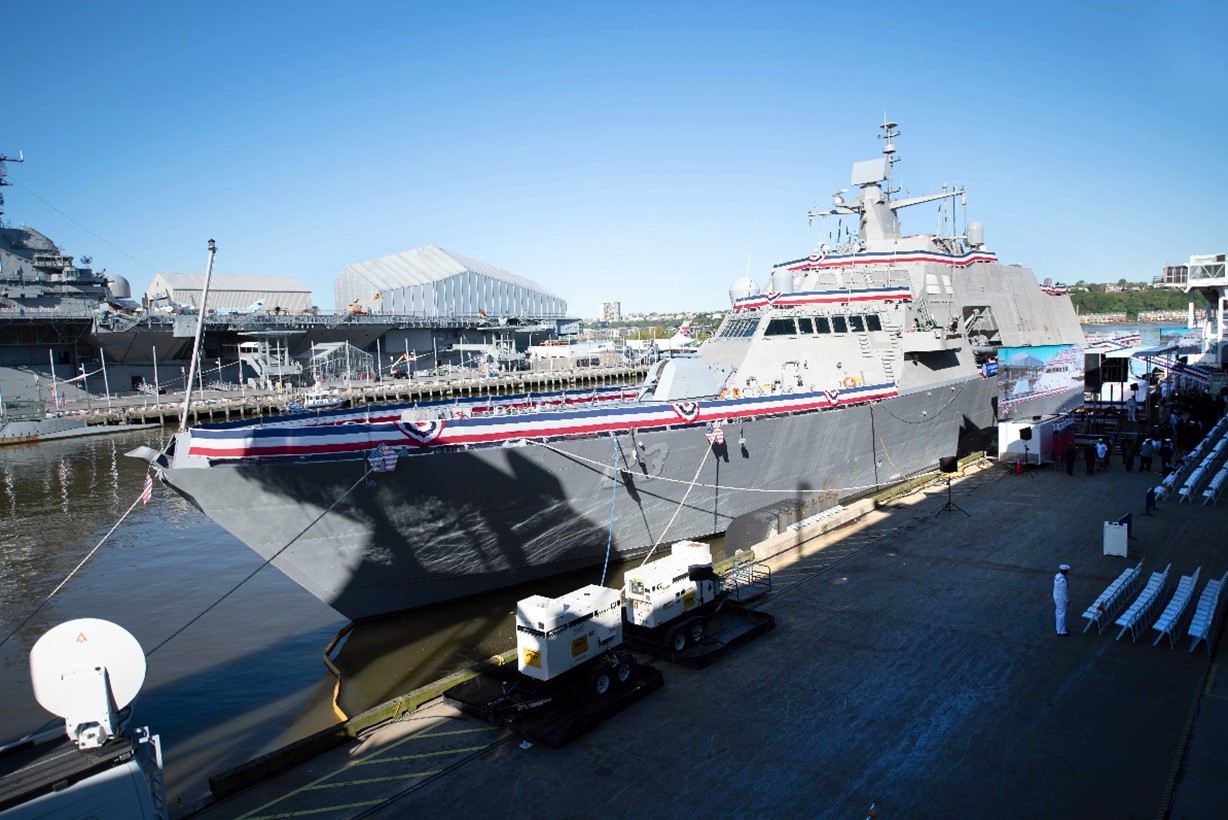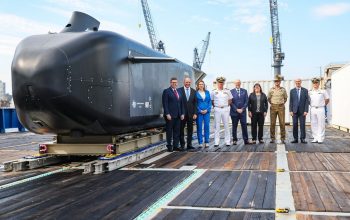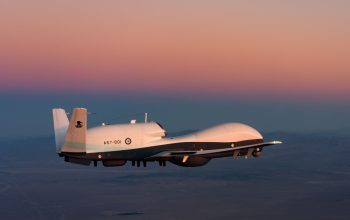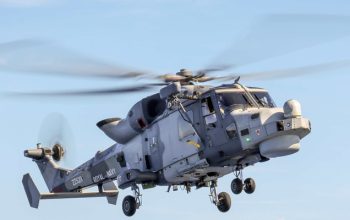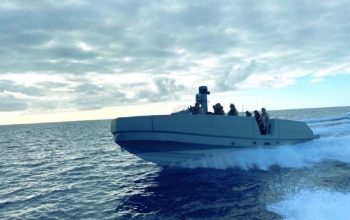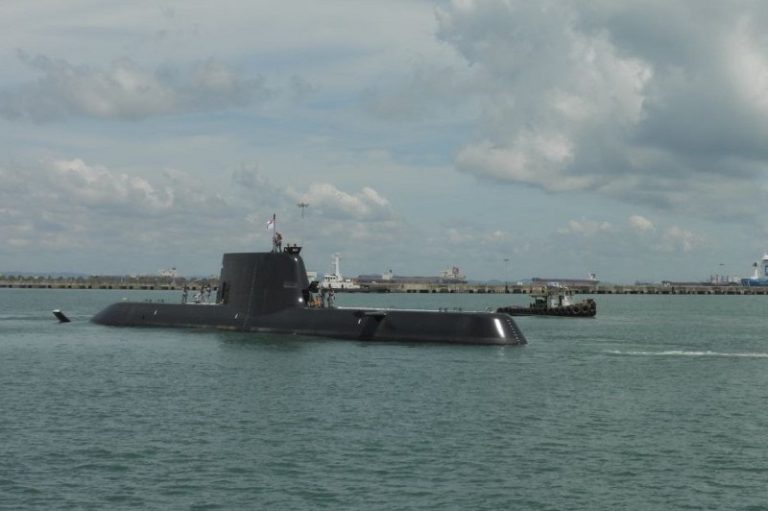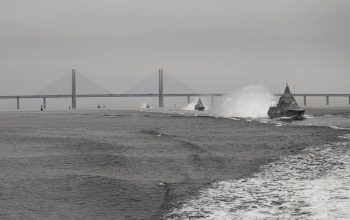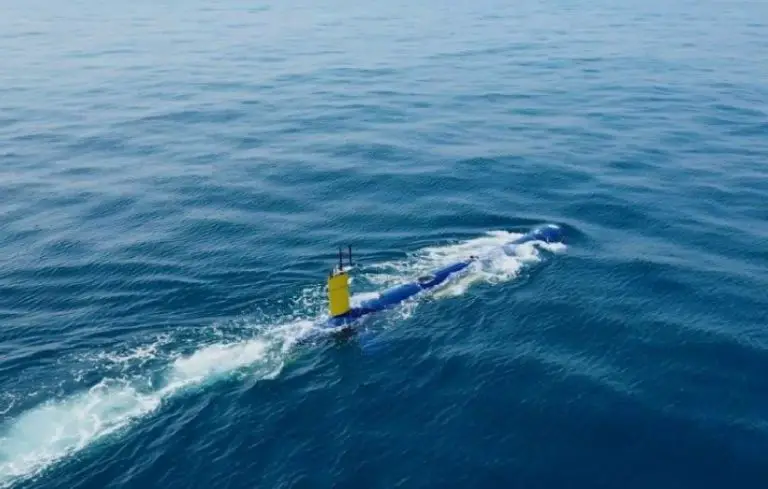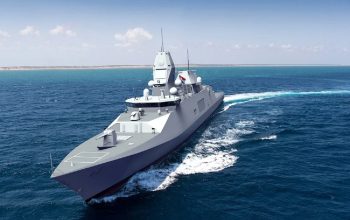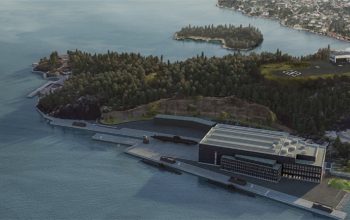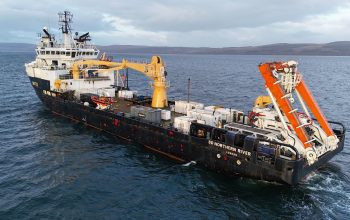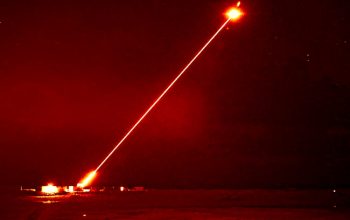The U.S. Navy commissioned Littoral Combat Ship (LCS) 23, USS Cooperstown – the nation’s twelfth Freedom-variant LCS – at Pier 88 in New York, New York. This milestone places the ship, built by the Lockheed Martin- (NYSE: LMT) led team, into active service with the U.S. Navy. Unique among combat ships, LCS is deployed today for close-to-shore missions and is a growing and relevant part of the Navy’s fleet. Its speed, strength and versatility make it a critical tool to help sailors achieve their missions. USS Cooperstown will be the first naval ship named after Cooperstown, New York and honors the 70 Hall of Famers who served the United States during wartime in a range of conflicts spanning the Civil War, World War I, World War II, and the Korean War.
“The crew gives the ship its own personality and warfighting spirit. The men and women of USS Cooperstown exemplify patriotism, grit, and what this great country of ours stands for. I am extremely proud to have all of the USS Cooperstown crew as shipmates.”— LCS 23’s Commanding Officer, Commander Daxton Moore.
“The speed, flexibility and lethality the Cooperstown will bring to the fleet is unmatched. With a unique set of capabilities, LCS 23 is ready for today and tomorrow’s threats, ensuring Navy sailors stay ahead of ready for any mission, anywhere.”– Chauncey McIntosh, vice president and general manager of Integrated Warfare Systems and Sensors at Lockheed Martin.

The Freedom class is one of two classes of the littoral combat ship program, built for the United States Navy. The Freedom class was proposed by a consortium formed by Lockheed Martin as “prime contractor” and by Fincantieri (project) through the subsidiary Marinette Marine as a contender for a fleet of small, multipurpose warships to operate in the littoral zone. Two ships were approved, to compete with the Independence-class design offered by General Dynamics and Austal . Freedom-variant Littoral Combat ships have supported the Navy on various missions including several counter-illicit drug trafficking in the Caribbean and Eastern Pacific resulting in hundreds of millions of dollars in narcotics seizures. Most recently, the Freedom-class Littoral Combat Ship for the first time has deployed to U.S. 6th Fleet, as a measure of assurance for NATO allies and partners in Europe and Africa.
The ship is a semiplaning steel monohull with an aluminum superstructure. It is 377 ft (115 m) in length, displaces 3,500 metric tons (3,400 long tons), and can achieve 47 kn (87 km/h; 54 mph). The design incorporates a large, reconfigurable seaframe to allow rapidly interchangeable mission modules, a flight deck with integrated helicopter launch, recovery and handling system, and the capability to launch and recover boats (manned and unmanned) from both the stern and side. The ship uses a Trigon traversing system to move helicopters in and out of the hangar. The ship has two ways to launch and recover various mission packages: a stern ramp and a starboard side door near the waterline. The mission module bay has a three-axis crane for positioning modules or cargo. The most serious problems with the Freedom class have been with the electrical systems.
